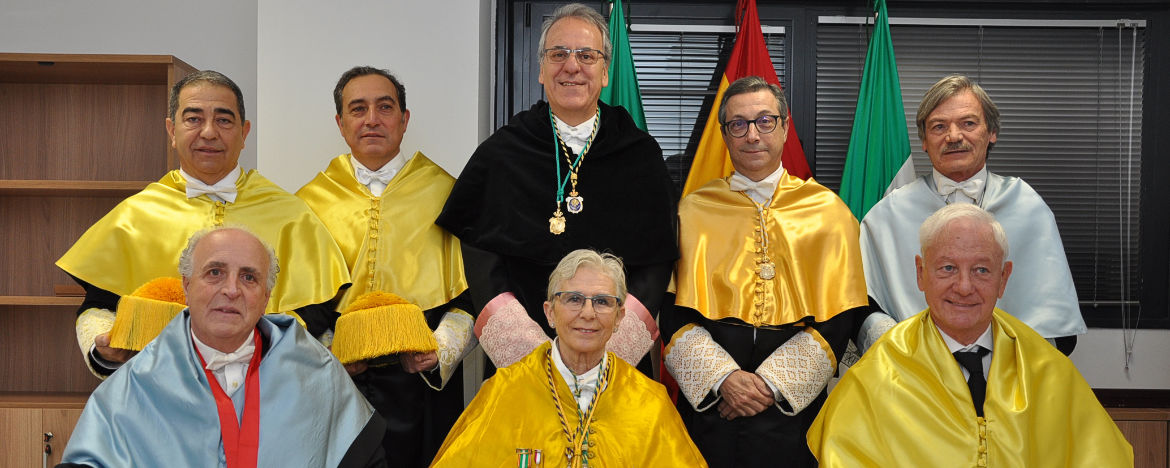UNC Rector awarded honorary doctorate by Universidad de Extremadura
UNC Rector awarded honorary doctorate by Universidad de Extremadura

In his Honorary Doctorate acceptance speech, UNC Rector stated that “we must insist that higher education is a social and strategic good”. The honorific degree was awarded by Universidad de Extremadura -Spain- to the Rector of Universidad Nacional de Córdoba and also to two other Spanish academics. [02/07/2018]
UNC Rector, Hugo Juri, was awarded an honorary doctorate by the Universidad de Extremadura (UEx) at the Guadiana Hall of the University Hospital “Infanta Cristina”, Badajoz. In this ceremony, the Spanish academics Antonio Rodríguez de Las Heras and María Castellano Arroyo were also awarded with the honorary doctorate degree.
This year, UEx honored prominent personalities in the field of Medicine. The ceremony was presided by its Rector, Segundo Píriz Durán, and was also attended by Juan Carlos Rodríguez Ibarra, university professor, Politician member of the Spanish Socialist Worker´s party (PSOE, in Spanish) and President of the Board of Extremadura for 24 years (from 1983 until 2007); and by Fernando Galván, Rector of Universidad de Alcalá de Henares, among other authorities.
Professor José Luis Gurría Gascón, promoter of Juri´s nomination, highlighted UNC Rector´s career as a researcher in the field of laser beams as well as his academic and university management.
In his speech, Juri recalled that universities should play the role of analysts of new technologies´ effects in the 21st century and also said that universities should live up to the challenges of this era. “We know that we have appropriate academic and scientific-technological structures in public universities but also that a great majority of higher education prospective students will need more flexible and efficient structures. A larger higher education budget would also be needed for this purpose at a time when we haven't yet convinced the established states and powers about higher education being a social and strategic good instead of an individual one.”
In another passage of his speech, Juri said: "Currently, we are implementing a new academic credit transfer system, designed for older students that today outnumber those students that have just finished middle school. These are workers who need specific knowledge now and not “in case of”, professionals that will need to update their know-how every year, etcetera. This requires having specialists in training courses that design these new models according to students´changing needs. It also requires university teams to follow in real time the productive and social trends in order to advise the academic areas and be able to reach quickly and efficiently the new educational proposals that our society needs."
During the ceremony, the first one to be awarded Honorary Doctorate was María Castellano Arroyo, the first professor of Medicine in Spain and the first woman to obtain a degree in forensic medicine in that country. In her speech, she stressed the need for legal and forensic medicine to be a medical specialty in order to respond to the demands of different administrations and society in general.
The last one to be awarded was Antonio Rodríguez de las Heras, professor of contemporary history at Universidad Carlos III de Madrid. His studies focus on the meeting point between information, communication technologies and humanities. In 1990, he was awarded the Fundesco de Ensayo for his book Navegar por la información. In his speech, he stated that society needs “new narrators” to shed light on the existing information overload.
Translation: Brenda Schauvinhold


